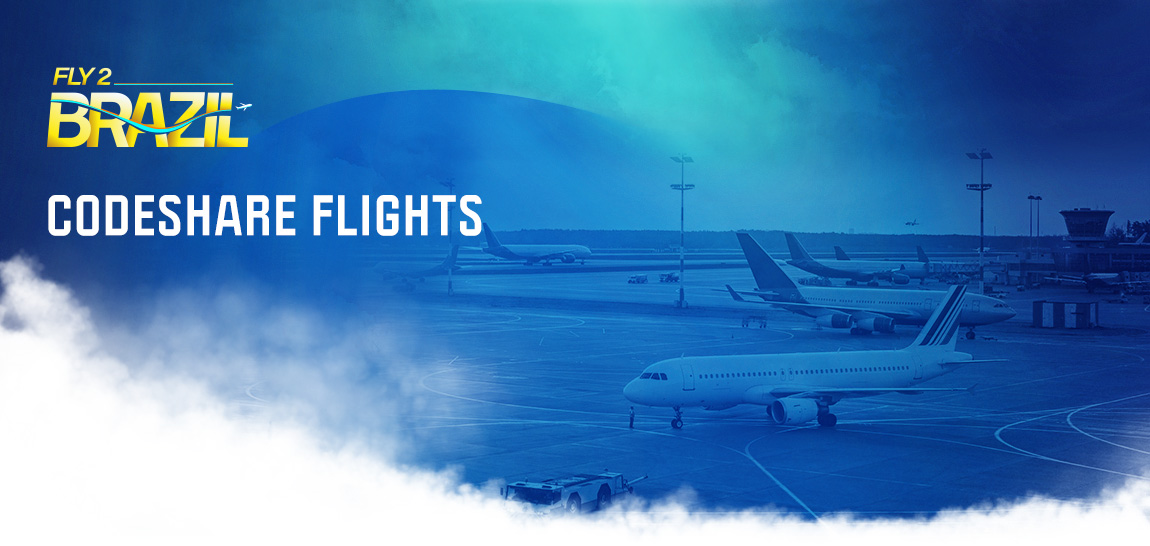
Codeshare is a commercial cooperation agreement in which an airline allows another airline to use its identification code on a flight, allowing passengers to book a flight with one airline but travel on a flight operated by another airline.
THIS COOPERATION CAN ENCOMPASS:
- Two Brazilian airlines sharing a code on both domestic and international routes.
- A Brazilian airline collaborating with a foreign airline on domestic routes, with the Brazilian airline serving as either the marketing carrier or the operator as part of an extension of an international flight.
- Two foreign airlines codesharing on international routes.
WHAT CHANGED IN CODESHARE OPERATIONS AFTER THE ENACTMENT OF ANAC RESOLUTION Nº. 692/2022?
Since the implementation of ANAC Resolution No. 692/2022, airlines are no longer required to file for prior authorization from ANAC for codeshare operations. However, some rules remain applicable and shall be observed by airlines.
All codeshare operations, whether they are domestic or international, must be formally registered in the Flight Register System (SIROS), as stipulated by ANAC Resolution Nº. 440 of 2017.
(*) The relieve of ANAC's prior authorization is a result of the repeal of Portaria DAC nº. 70/1999. It's important to note that this exemption does not relive airlines from seeking other necessary consultations or permissions that other public agencies may require according to their regulations.
FOR INTERNATIONAL OPERATIONS
Beyond the obligation of previous registration of operation, according to ANAC Resolution nº. 440, airlines shall observe the international understandings in force between Brazil and the State of the foreign airline and of the other States involved in the routes that will be operated, with special attention to the following:
- International Understanding Compatibility: Airlines must ensure that the international agreement allows for codeshare operations. In some cases, these agreements may be bilateral, permitting codeshare arrangements exclusively between Brazilian airlines and airlines from the destination/origin State of the flight. Alternatively, they may be bilateral and extend to third countries, allowing airlines from a third State to share a code.
- Route Schedule Alignment: The intended operations must align with the Route Schedule in force between the countries involved.
DOES THE ABSENCE OF AN INTERNATIONAL UNDERSTANDING BETWEEN BRAZIL AND THE COUNTRY OF THE AIRLINE WHICH INTENDS TO SHARE A CODE PREVENT A CODESHARE OPERATION?
Certainly. However, the intention to operate such codeshare may motivate conversations between Brazil and the other country involved. It's also possible that a letter of reciprocity could expedite the process. The same is applicable when an international understanding already exists but limits the intended operation.
In such cases, airlines seeking to operate codeshare flights to a country with which Brazil has no negotiated understanding, or where existing agreements impose restrictions, are required to inform it to ANAC through the Air Services Negotiations Contribution Form or by sending an email to geam@anac.gov.br.
WHICH CODE SHARE OPERATIONS CAN ALWAYS BE REGARDED AS POSSIBLE?
Whenever international understandings between Brazil and the involved countries covers: bilateral and third countries codeshare; and open route schedule, all combinations are possible.
CAN AN INTERNATIONAL AIRLINE SELL DOMESTIC FLIGHTS IN BRAZIL, REGARDLESS OF THE POINTS SPECIFIED IN THE ROUTE SCHEDULE?
Yes, but only when the domestic flight is operated by a Brazilian carrier and it is the continuation of an international operation. Foreign airlines cannot exclusively commercialize local traffic in the Brazilian territory.
For any additional inquiries or concerns regarding code share operations, please contact ANAC on geam@anac.gov.br.